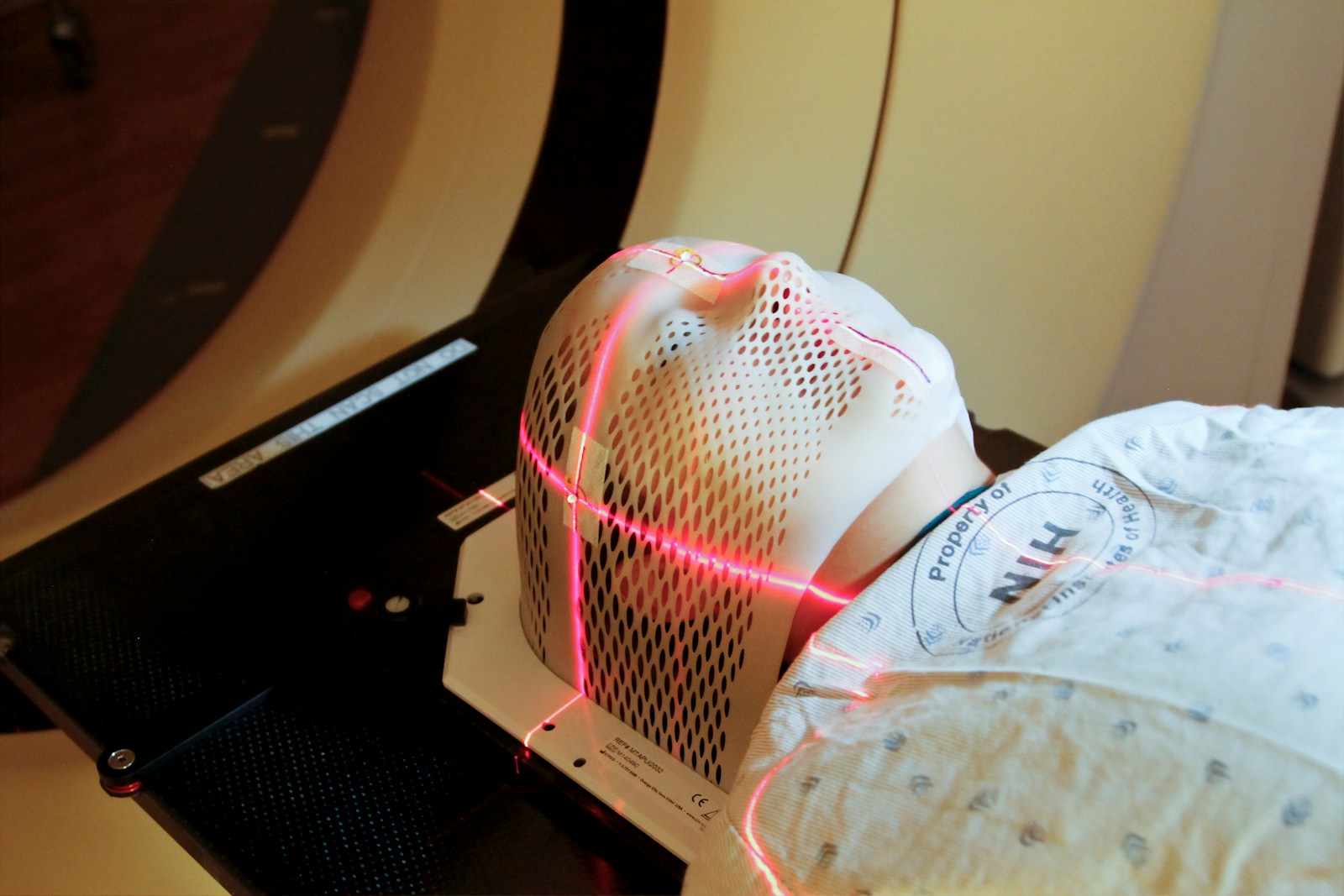Advancements in artificial intelligence (AI) have revolutionized the field of healthcare, particularly in enhancing diagnostic accuracy.
Through the utilization of machine learning algorithms and deep neural networks, AI systems can analyze vast amounts of medical data with remarkable speed and precision. This capability allows healthcare providers to make more accurate and timely diagnoses, leading to improved patient outcomes and more personalized treatment plans.
Incorporating AI into diagnostic processes also helps in identifying patterns and correlations that may not be readily apparent to human clinicians. By analyzing diverse data sources such as genetic information, medical images, and patient history, AI can provide valuable insights that aid in the early detection of diseases and the prediction of potential health risks. This not only streamlines the diagnostic process but also ensures that patients receive prompt and targeted interventions for better management of their health conditions.
Potential of AI in Personalized Treatment Plans
AI has the capacity to revolutionize the concept of personalized treatment plans in healthcare. By analyzing vast amounts of patient data, AI can identify patterns and trends that human practitioners might overlook, leading to more tailored and effective treatment strategies. This technology can consider a patient’s unique genetic makeup, medical history, lifestyle factors, and even real-time data to recommend the most suitable intervention or medication for an individual’s specific condition.
In addition to enhancing treatment customization, AI can also optimize medication dosages and predict potential side effects based on individual responses. This level of precision in treatment planning can significantly improve patient outcomes and reduce the likelihood of adverse reactions. By leveraging AI to create personalized treatment plans, healthcare providers can offer patients a higher standard of care that is tailored to their specific needs and medical profile.
Integration of AI in Medical Imaging Analysis
Medical imaging analysis has seen a significant transformation with the integration of Artificial Intelligence (AI) technologies. AI algorithms can efficiently process and interpret complex medical images such as X-rays, MRI scans, and CT scans with high accuracy and speed. By leveraging machine learning techniques, AI systems can quickly detect anomalies, tumors, or other abnormalities in medical images, aiding healthcare professionals in making more precise diagnoses.
Moreover, the integration of AI in medical imaging analysis has not only improved diagnostic accuracy but has also enhanced the overall efficiency of healthcare delivery. With AI’s ability to analyze vast amounts of imaging data rapidly, healthcare providers can expedite the diagnosis process, reduce the chances of human error, and ultimately improve patient care outcomes. Additionally, AI-powered medical imaging systems can provide valuable insights and recommendations to radiologists and other healthcare professionals, resulting in more informed treatment decisions and better patient management strategies.
AI-driven Predictive Analytics for Disease Prevention
AI-driven predictive analytics for disease prevention is revolutionizing the way healthcare professionals identify and address potential health risks in individuals. By leveraging vast amounts of data and advanced algorithms, AI can forecast the likelihood of developing specific conditions based on various factors such as genetics, lifestyle choices, and environmental influences. This proactive approach enables healthcare providers to intervene early, offering targeted interventions and personalized preventive strategies to mitigate risks and improve patient outcomes.
The predictive power of AI in disease prevention is particularly impactful in chronic conditions like diabetes, cardiovascular diseases, and cancer. By analyzing a range of data points, including genetic markers, patient history, and lifestyle habits, AI can generate insights that help healthcare providers tailor intervention plans to individuals’ unique needs. This tailored approach not only enhances the effectiveness of preventive measures but also empowers patients to take a proactive role in managing their health and reducing the burden of chronic illnesses.
Improving Patient Outcomes through AI-powered Decision Support Systems
AI-powered decision support systems play a pivotal role in enhancing patient outcomes by providing healthcare professionals with real-time data-driven insights. These systems leverage machine learning algorithms to analyze vast amounts of patient data, assisting clinicians in making more accurate diagnoses and treatment decisions. By integrating AI technologies into clinical decision-making, healthcare providers can offer personalized and targeted care to patients, ultimately leading to improved health outcomes and enhanced patient satisfaction.
Moreover, AI-powered decision support systems help healthcare professionals stay updated with the latest medical research, guidelines, and best practices. By continuously analyzing and interpreting medical literature and patient data, these systems can recommend evidence-based treatment options and alert clinicians to potential risks or complications. This proactive approach not only improves patient outcomes but also reduces medical errors, enhances efficiency in care delivery, and promotes overall quality of healthcare services.

Challenges and Ethical Considerations in AI Implementation
One major challenge in the implementation of AI in healthcare is the potential for biases to be perpetuated or amplified by the technology. Machine learning algorithms can inadvertently learn and replicate biases present in the data used to train them, leading to inaccurate or unfair outcomes for certain patient populations. Addressing these biases and ensuring that AI tools are used in a fair and ethical manner is crucial for the successful integration of these technologies into clinical practice.
Another ethical consideration revolves around the issue of patient privacy and data security. AI systems rely heavily on vast amounts of patient data to operate effectively, raising concerns about how this sensitive information is collected, stored, and utilized. Healthcare organizations must prioritize the protection of patient data and adhere to strict privacy regulations to prevent breaches or misuse of personal health information in the context of AI implementation. Striking a balance between leveraging AI for improved healthcare outcomes and safeguarding patient privacy is essential for fostering trust and acceptance of these technologies in the healthcare industry.
Cost-effectiveness of AI in Healthcare Delivery
AI in healthcare delivery has shown promising potential in enhancing cost-effectiveness across various aspects of the healthcare sector. By streamlining processes, reducing errors, and optimizing resource allocation, AI technologies have the capability to bring about significant cost savings for healthcare providers. Through the automation of routine tasks and the analysis of vast amounts of data, AI can help healthcare organizations operate more efficiently and effectively, ultimately leading to improved financial outcomes.
Moreover, the utilization of AI in healthcare can also contribute to cost-effectiveness by facilitating early disease detection and intervention. By leveraging machine learning algorithms to analyze patient data and identify patterns indicative of potential health issues, healthcare providers can intervene at an early stage, thereby reducing the overall cost of treatment and improving patient outcomes. This proactive approach to healthcare delivery not only benefits patients by promoting better health outcomes but also helps healthcare organizations economize resources and prevent unnecessary expenses.
Future Trends in AI-driven Healthcare Innovations
As artificial intelligence continues to advance, the future of healthcare is poised for significant innovations. One prominent trend on the horizon is the development of AI-powered virtual health assistants. These assistants will revolutionize patient care by providing personalized guidance, assistance with medication management, and continuous monitoring of health metrics in real-time. Additionally, AI-driven health assistants have the potential to improve patient engagement and adherence to treatment plans, ultimately leading to better health outcomes.
Another emerging trend in AI-driven healthcare innovations is the integration of predictive analytics to identify high-risk patients and initiate preventive interventions. By harnessing the power of machine learning algorithms, healthcare providers can proactively address potential health issues before they escalate, reducing hospital admissions and healthcare costs. Furthermore, predictive analytics can facilitate early detection of diseases and promote timely interventions, thus enhancing overall patient well-being and quality of life.
Regulatory Framework for AI in Clinical Practice
When it comes to the integration of artificial intelligence (AI) in clinical practice, establishing a robust regulatory framework is paramount to ensure patient safety and data privacy. The evolving nature of AI technologies necessitates continuous monitoring and updates to existing regulations to keep pace with advancements in the field. Regulatory bodies play a crucial role in providing guidelines for the development, deployment, and maintenance of AI systems in healthcare settings, aiming to uphold ethical standards and maintain the quality of care provided to patients.
The regulatory framework for AI in clinical practice addresses key areas such as data security, transparency in algorithm development, validation processes, and accountability for AI-driven decisions. By outlining requirements for ethical considerations, technical standards, and governance structures, regulatory guidelines help healthcare providers navigate the complexities of implementing AI solutions while mitigating potential risks. Compliance with regulatory requirements not only ensures the safe and effective use of AI in patient care but also fosters trust among stakeholders in the healthcare ecosystem.
Collaboration between Healthcare Professionals and AI Technologies
Healthcare professionals and AI technologies are increasingly collaborating to improve patient care and enhance healthcare outcomes. AI systems are integrated into various medical processes such as diagnosis, treatment planning, and disease prevention, providing valuable insights and recommendations to healthcare providers. By leveraging the analytical power of AI algorithms, clinicians can make more informed decisions, leading to more accurate diagnoses and personalized treatment strategies.
The collaboration between healthcare professionals and AI technologies also extends to streamlining administrative tasks and improving operational efficiencies within healthcare organizations. AI-powered tools can automate routine tasks, manage patient data more effectively, and assist in resource allocation, enabling healthcare providers to focus more on direct patient care. This partnership between human expertise and advanced technological capabilities is revolutionizing the healthcare industry, paving the way for a more efficient and patient-centered approach to healthcare delivery.
